
-
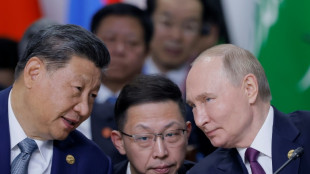 China's Xi heads to Moscow to beef up 'no limits' Putin partnership
China's Xi heads to Moscow to beef up 'no limits' Putin partnership
-
World energy methane emissions near record high in 2024: IEA

-
 White smoke: signalling a new pope down the ages
White smoke: signalling a new pope down the ages
-
What's a cardinal? The 'princes' of the Church electing a new pope

-
 Papal conclave by the numbers
Papal conclave by the numbers
-
The Vatican: a papal powerhouse, world's smallest state

-
 Trump, Ukraine propel EU and UK towards defence pact
Trump, Ukraine propel EU and UK towards defence pact
-
Syrian leader to meet Macron in first European visit

-
 History beckons as cardinals gather to elect new pope
History beckons as cardinals gather to elect new pope
-
China's Xi aims to beef up 'no limits' Putin partnership
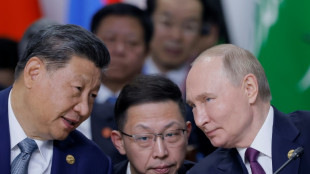
-
 Hit by Trump cuts, journalists at Dubai-based US channel face uncertain future
Hit by Trump cuts, journalists at Dubai-based US channel face uncertain future
-
Roglic gunning for Giro as Pogacar's absence leaves door open

-
 Trump's White House creates own media universe
Trump's White House creates own media universe
-
Sotheby's postpones historical gems auction after India backlash

-
 Taiwan bicycle makers in limbo as US tariff threat looms
Taiwan bicycle makers in limbo as US tariff threat looms
-
Tobacco town thrives as China struggles to kick the habit
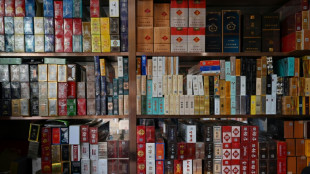
-
 Venezuelan opposition figures 'rescued', now in US: Rubio
Venezuelan opposition figures 'rescued', now in US: Rubio
-
China eases monetary policy to boost ailing economy

-
 Haliburton stunner sinks Cavs as Pacers take 2-0 series lead
Haliburton stunner sinks Cavs as Pacers take 2-0 series lead
-
No rate cuts expected from US Fed facing 'unfavorable' conditions
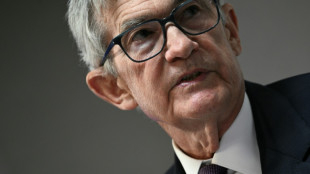
-
 'No one is illegal': Mormon women stage patchwork protest in Washington
'No one is illegal': Mormon women stage patchwork protest in Washington
-
Indonesia's silvermen beg to make ends meet

-
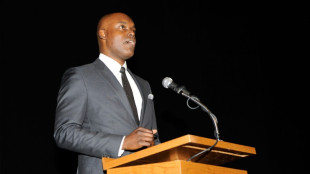 Toronto festival head says Trump tariffs would hurt film quality
Toronto festival head says Trump tariffs would hurt film quality
-
Trump talks tough on China, but early focus elsewhere
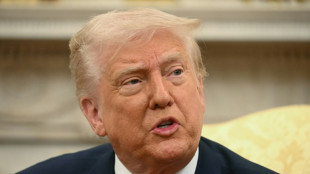
-
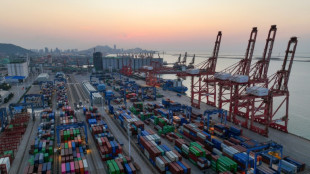 China vows to defend 'justice' in looming trade talks with US
China vows to defend 'justice' in looming trade talks with US
-
Man Utd seek to finish off Athletic Bilbao in chase for Europa glory

-
 AP to continue crediting 'Napalm Girl' photo to Nick Ut after probe
AP to continue crediting 'Napalm Girl' photo to Nick Ut after probe
-
Colombia moves to join China's Belt and Road
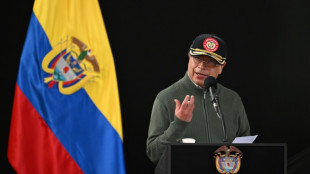
-
 Martinez cried 'for two days' after nearly missing Barca triumph with injury
Martinez cried 'for two days' after nearly missing Barca triumph with injury
-
US, Chinese officials to hold trade talks in Switzerland
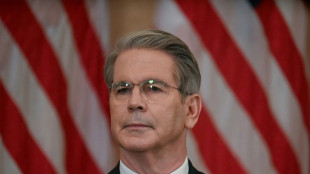
-
 Barca 'will be back' after painful Champions League exit to Inter, says Flick
Barca 'will be back' after painful Champions League exit to Inter, says Flick
-
US jury awards WhatsApp $168 mn in NSO Group cyberespionage suit

-
 India launches strikes on Pakistan, Islamabad vows to 'settle the score'
India launches strikes on Pakistan, Islamabad vows to 'settle the score'
-
Trump vows 'seamless' experience for 2026 World Cup fans
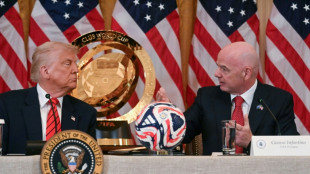
-
 Motown legend Smokey Robinson sued for sexual assault
Motown legend Smokey Robinson sued for sexual assault
-
Trump hopes India-Pakistan clashes end 'very quickly'

-
 Frattesi shoots Inter into Champions League final after Barcelona epic
Frattesi shoots Inter into Champions League final after Barcelona epic
-
India launches strikes on Pakistan, Islamabad vows retaliation

-
 India launches strikes on Pakistan as Islamabad vows retaliation
India launches strikes on Pakistan as Islamabad vows retaliation
-
Alpine shock as F1 team principal Oakes resigns

-
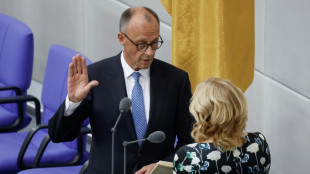 Merz elected German chancellor after surprise setback
Merz elected German chancellor after surprise setback
-
Gujarat edge Mumbai in last-ball thriller to top IPL table

-
 Israel's plan for Gaza draws international criticism
Israel's plan for Gaza draws international criticism
-
SpaceX gets US approval to launch more Starship flights from Texas

-
 Alpine F1 team principal Oakes resigns
Alpine F1 team principal Oakes resigns
-
Colombia's desert north feels the pain of Trump's cuts

-
 Arsenal determined 'to make a statement' against PSG in Champions League semi-final
Arsenal determined 'to make a statement' against PSG in Champions League semi-final
-
Top US court allows Trump's ban on trans troops to take effect
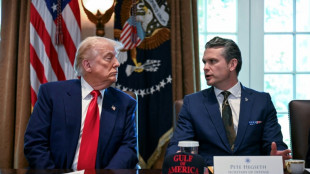
-
 Whole lotta legal argument: Led Zeppelin guitarist Page sued
Whole lotta legal argument: Led Zeppelin guitarist Page sued
-
US, Yemen's Huthis agree ceasefire: mediator Oman


US Fed's preferred inflation gauge shows some cause for concern
The US Federal Reserve's preferred inflation measure was largely unchanged last month, according to government data published Friday, but a widely scrutinized gauge of underlying price pressures rose.
The personal consumption expenditures (PCE) price index rose 2.5 percent in the 12 months to February, the Commerce Department said in a statement, unchanged from a month earlier. Inflation rose 0.3 percent on a monthly basis.
Both measures were in line with the median forecasts from economists surveyed by Dow Jones Newswires and The Wall Street Journal.
But of greater concern to Fed officials, an inflation measure stripping out volatile food and energy costs rose more than expected, by 0.4 percent month-on-month, and by 2.8 percent from a year ago.
The Fed is attempting to return inflation to its long-term target of two percent. Friday's data suggests policymakers still have some way to go as they also grapple with the effects of trade policy uncertainty.
"They're kind of in wait-and-see mode for awhile," Wolfe Research chief economist Stephanie Roth told AFP. "Our call is that they're going to cut rates because growth is weakening, but they actually need to see a rising unemployment rate first.
"So today probably doesn't really change the narrative that much for them," she added.
- Stop-start tariff rollout -
US President Donald Trump has embarked on a stop-start rollout of country- and sector-specific tariffs, drawing condemnation from allies and warnings from Fed officials that the measures will likely push up prices.
"It looks inevitable that tariffs are going to increase inflation in the near term," Boston Fed President Susan Collins -- who has a vote on the US central bank's rate-setting committee this year -- said Thursday.
Earlier this month, the Fed voted to extend a pause in rate cuts, holding its key lending rate at between 4.25 and 4.50 percent.
Financial markets see a roughly 90 percent chance that the Fed will vote to continue that pause at its next rate meeting in May, according to CME Group.
"The data support our view that downside risks to the economy are emerging, but with inflation heating up, the Fed for now will maintain its wait-and-see approach," Nationwide chief economist Kathy Bostjancic wrote in a note to clients.
Personal income increased by 0.8 percent last month, according to the Commerce Department data published Friday.
And personal saving as a percentage of disposable personal income -- a measure of how much consumers are saving -- jumped to 4.6 percent last month, up from a revised 4.3 percent a month earlier.
The jump in the personal savings rate since the start of the year may be related to consumer confidence, which has deteriorated sharply in recent months, with consumers more likely to save money if they are concerned about where the economy is headed.
Americans are now feeling less optimistic about the US economy, and more concerned about rising inflation, according to fresh data on consumer sentiment published Friday by the University of Michigan.
"UMich isn't the greatest measure, but I think directionally, it tells you something important," said Roth from Wolfe Research.
"And I think it's telling you that consumers are starting to become concerned about the inflation backdrop, and this is the thing that differentiates whether the Fed is able to look through this tariff or not."
K.Sutter--VB
